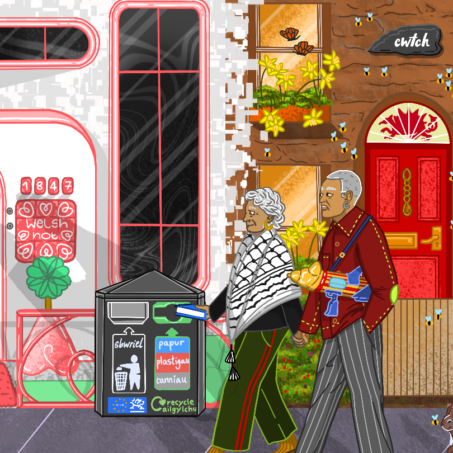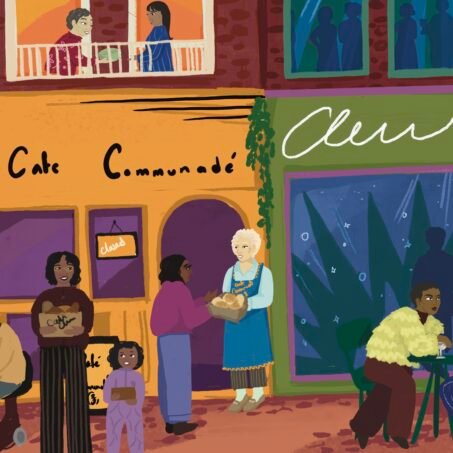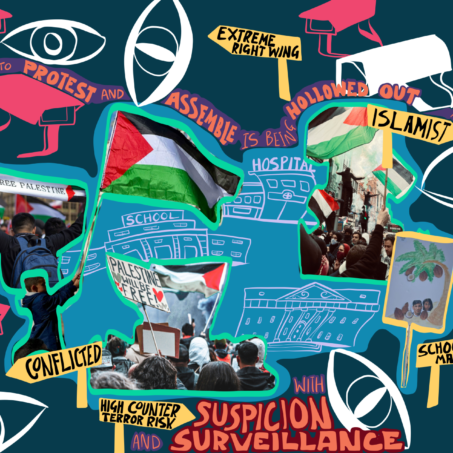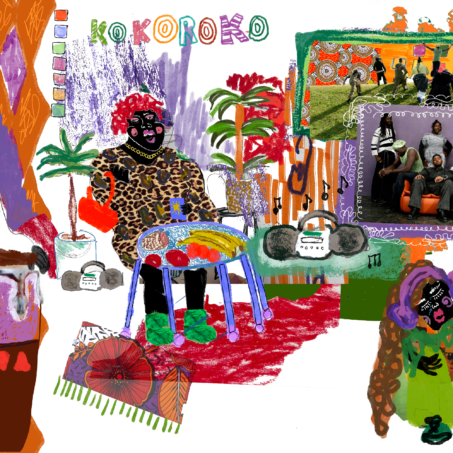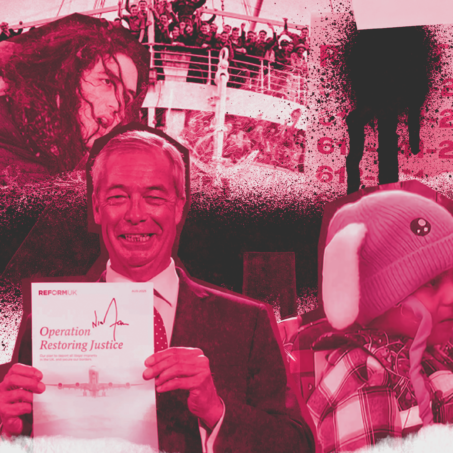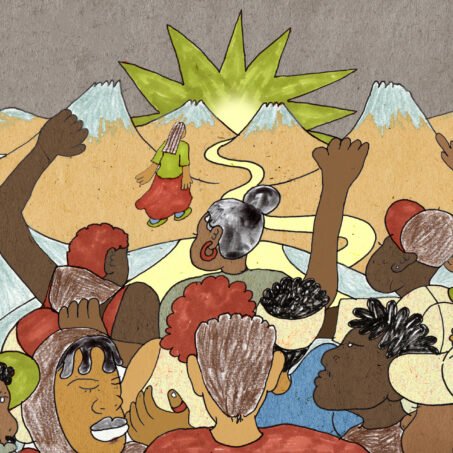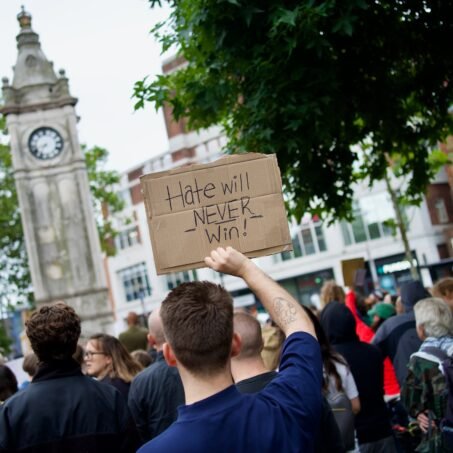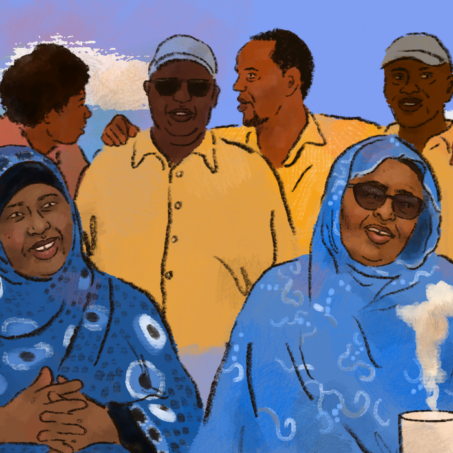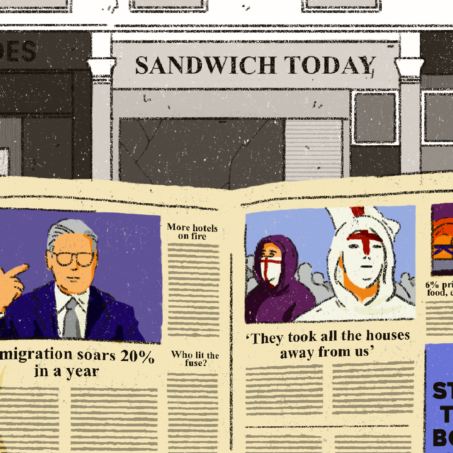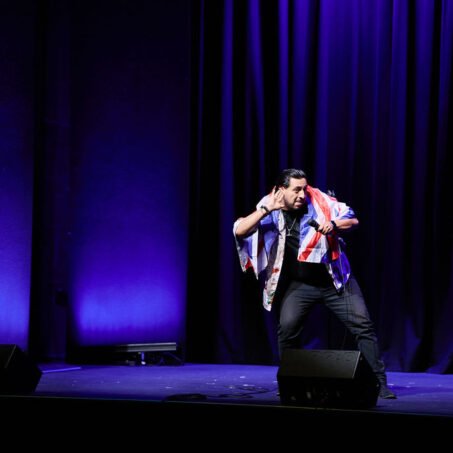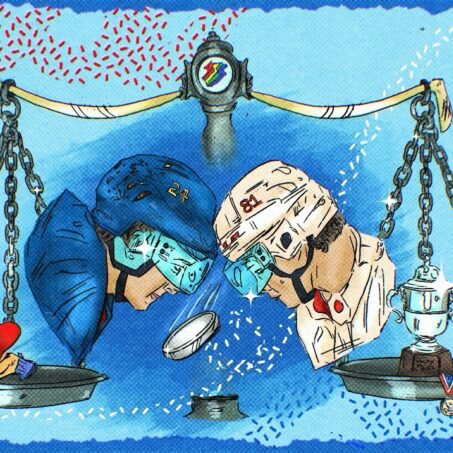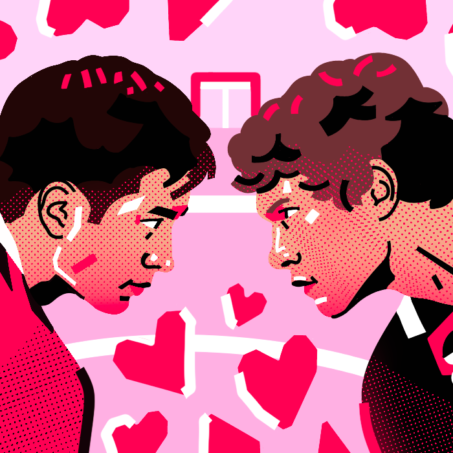Ella Stockton is a friend of mine. She works in the local TV industry, both as an actor and as an Assistant Director (AD). She’s also a trans woman. We met on a set, around this time last year, and built a fast kinship with one another in the ways that minorities often do.
I work in the industry infrequently, alongside other work, while Ella is fully immersed. She loves the industry – it’s an exhilarating place to be, and the feeling of co-creating a product as massive as a TV show is second-to-none. But it’s not easy. I sat down with her to talk about her experiences with transphobia and misogyny in the industry, and what she shared with me was shocking, but unfortunately not surprising.
The limits of representation
If you’ve never been on a set before, there’s one thing that you need to reframe in your mind about it. Even though, on the screen, there’s often only a few characters, the infrastructure to facilitate these characters and their actors requires massive crews. Sometimes it still surprises me quite how many people there will be. If there are five principle cast members in a scene, chances are, the set will have between 50 to 80 people there. And that doesn’t even account for all the work that’s done on a set or in a production office before the actors are even there.
There’s a reason it’s so expensive to make film, and a lot of that is the sheer amount of labour it takes. And, despite huge gains in diversity with directors and writers, the majority of the labourers on a set, at least here in South Wales, will be cis-het white men. Imagine you’re a queer woman, or a person of colour, or a trans woman. Even getting into a trainee position is difficult in an industry that’s so famously patriarchal.
Although Ella believes it’s changing for the better, it’s not controversial to recognise that, historically, “it’s been always a man holding the roles of the ADs, Sparks [lighting technicians], the camera department. And, of course, the Directors have always been men.”
Precarious working conditions
The UK TV & Film industry is an unsteady one at the best of times – a scrappy, insular, freelance world that often requires money and contacts to chisel your way into.
In the aftermath of the US WAG and SAG-AFTRA strikes, though, it’s worse than usual. Many of my friends have been out of work for months, and have been working in other industries to get by. In South Wales, if you’re not on Casualty or Doctor Who (both Cardiff-based), there’s precious little out there.
Things are beginning to pick up, but the knock-on effects of the US strikes on the UK industry have been profound, with lots of productions funded by US money being halted or completely withdrawn. Since that money funds a lot of work in South Wales (for instance, Disney’s Willow, Netflix’s Sex Education, Hulu’s Black Cake), it’s not a surprise that research conducted in Autumn 2023 by the Film and TV Charity has found that 71% of those surveyed expected “to not have enough work over the next 6 months.” A scrappy industry has become even scrappier, and minorities seem to be taking the largest hits.

Misogyny and transphobia in the industry
Ella and I have very different experiences when it comes to gender: I’m a trans-misogyny-exempt non-binary person, and she is a trans woman. But when it comes to the film and TV industry, we both run into discrimination on a regular basis. Even on the show that Ella and I met on, a remarkably queer-run show with a remarkably queer storyline, I only wore my little they/them badge for a few days, learning that misogyny was easier for me to deal with than transphobia.
For Ella, though, misogyny and transphobia often come hand-in-hand. From misgendering on set, to members of the public being transphobic on location shoots, and run-ins with transphobic heads-of-department, it isn’t easy to be so visibly multiply marginalised in this industry.
“When you get misgendered, it’s horrible, isn’t it?” Ella says, and I nod, although I am broadly used to it. But then she articulates why it hurts in a way that’s haunted me since: “It’s just that feeling of, oh gosh, I’m not being seen as who I am.” It’s jarring, this disconnect between who you know yourself to be and how others perceive you. It’s grating, too, to have the breadth of who you are reduced to one aspect of yourself: your gender incongruence.

Lack of support systems
“I’m always proud of myself for being very open,” Ella tells me. “I would rather talk quite candidly and be vulnerable to people to help people understand trans experiences and get rid of any weird taboo feelings they might have.” She shouldn’t have to do that – she should just be able to go in and do her job. But, even with her generosity and candour, there was a time where a Director cornered her in the toilets, only to tell her that she was “born with the bits [she] was meant to be born with” and that she was “the elephant in the room” for being trans.
This was a serious incident of transphobia, but Ella felt that she could do nothing about it. “I didn’t say anything,” she tells me. “I just kept it quiet, out of fear of being seen as trouble”.
In a freelance industry, the last thing you need, as a minority, is the reputation of being difficult to work with. Plus, Ella remarks, across the working world, “there is this pervasive idea that hiring a trans person has this sort of difficulty involved in it, that we are in some way going to be difficult. So I thought, hey, if this is the start of my career and I’m now kicking up a fuss, I’m never gonna work again.”
That’s certainly a fear I’ve felt when considering whether or not to report certain language or behaviour. Especially with work so thin on the ground, there’s definitely a feeling like you have to be grateful for any work you do get, even if it’s an awful experience.
But a few days after that first incident, Ella had another run-in with this Director, who thought it would be okay to ask Ella for her deadname, and proceed to try and guess what it was when she didn’t disclose it. “I felt very vulnerable, I felt exposed, I felt attacked. Why would I want to work for someone who feels this way about me?” That Director received multiple formal complaints on that show for transphobia, racism, and ableism towards cast and crew. Regardless of their behaviour, they still enjoy a stable and seemingly untarnished career. Meanwhile, research conducted in 2018 found that 43% of UK employers were unsure if they would recruit a trans person at all, let alone support them through incidents like this.
The need to build care into our workplaces
There’s another difficult aspect to being trans in TV & Film, and something that is structural rather than interpersonal: time. The way the industry is built, the majority of workers will be on various different day rates depending on their experience and expertise. Since people’s wages are by the day and not by the hour, the industry collectively takes advantage of that by having incredibly long working days. They would also prefer to pay everyone over-time then have to add things on to the end of a shoot (and therefore pay people for another day’s work).
Ella explains that, not only is it a shock to the system to be working 50+ hour weeks, it also presents a real material barrier when it comes to following through with gender-affirming care.
Every 90 days, Ella has a testosterone blocker shot. “When I have that done, that’s basically the whole day out for me, because I have to go to an actual surgery, have it injected into me, and then I’m in pain afterwards,” she tells me.
Not only that, but regular blood tests and prescriptions, regular consultants appointments about gender-affirming surgeries, and time off for these surgeries poses a real challenge to freelancers like Ella. “By the time we leave set, pharmacies are closed. GPs are closed. I can’t pick up my hormones. I’ve actually had to take days off just to literally pick up my hormones.” She laughs as she tells me this, and I laugh as well, just at the absurdity of it, but it is a real issue.

Join our mailing list
Sign up for shado's picks of the week! Dropping in your inbox every Friday, we share news from inside shado + out, plus job listings, event recommendations and actions ✊
Sign up for shado's picks of the week! Dropping in your inbox every Friday, we share news from inside shado + out, plus job listings, event recommendations and actions ✊
A culture of overwork
Long days aren’t just a problem for trans people, either, but a real barrier of access for disabled people too. How much talent and creativity is the TV industry missing out on because of this culture of over-work? How many people could make incredible art, but because they physically can’t do 11 hour days, they’re left out?
This is not a new conversation, but it does feel novel. There’s a certain militaristic masochism when it comes to long set days; it’s almost a badge of honour to be voluntarily working so many hours that the turn-around between shifts is illegal. It’s an unspoken expectation that if you want to ‘make it’ in the industry, you have to be there early and leave late, eating into your scant free time, often unpaid. It’s exploitative, but in such a competitive industry, there often isn’t an alternative.
But the long days also make discrimination – both intentional and accidental – harder to deal with. “If the first thing that happens when I walk in is I get misgendered or I get some sort of transphobic comment, it’s very difficult to see through another twelve hours of the day.” A lot of this sort of behaviour is very difficult to report, too, especially if you can’t prove malicious intent behind it, or the direction of their words.
I am reminded of a glib comment a spark made last year, as a work experience placement who was a wheelchair user first came onto set. “Bloody hell, we’ve had all sorts on this job,” he announced at the tea table, to no one in particular, obviously used to people agreeing with him.
Standing nearby, my queer, butch, gender-non-conforming self, at the very bottom of the hierarchy, there was nothing to do but grind my teeth and hope that the wheelchair user hadn’t heard him. If I ran to a sympathetic producer every time I heard a comment like that, directed at me or not, I would never get anything done.
Attitudes are changing, and new entrants into the industry are being told that this sort of behaviour is totally unacceptable. Some productions have an external welfare lead, who comes in once a week and people can go and have a chat with them, which often eases points of tension and can be a non-judgmental and sympathetic ear, with the power to escalate concerns and reports of abusive behaviour. But whether you have this outlet depends wholly on the production, and it is far from mandatory.
So, with all that in mind, why is it that Ella still works in these environments? “I want it to give hope to people”, she tells me, a little embarrassed. “There’s so many times when I first came out when I genuinely thought my life was over. I thought me coming out as trans was almost a death sentence for a lot of my life as a result of what had been drummed into me by the media.”
But by being stubborn, and being visible, she wants to make it easier for other trans people to find a place in this industry: “hopefully that will allow another me, or a trans masc person, or non-binary person, anyone gender-non-conforming to think, oh if she can do it, then so can I. So that’s a big part of why I’m still here.”
What you can do?
- Donate to Ella’s fundraiser for gender-affirming healthcare not offered on the NHS.
- Donate to Trans Aid Cymru. TAC is a vital lifeline for trans people in South Wales – we provide regular grants, comprehensive support, and social opportunities.
- Are you a big-time producer, director, or commissioner? Hire trans people to work on your sets! Head over to Trans On Screen to find a directory of UK trans talent for both behind and in front of the camera.
- Do you work in the film & TV industry? Use The Time Project app to accurately log your hours, and contribute to a body of evidence looking to combat the culture of overwork.
- Read: ‘The TV Industry: Exposed’, The Guardian (2021)
- Read: ‘Welcome to Terf Island: How Anti-Trans Hate Skyrocketed 156% in Four Years’, Novaro Media (2023)
- Read: ‘More Trans People Hiding Identity at Work Than Five Years Ago – Report’, The Guardian (2021)
- Read: ‘None of the Above: Reflections on Life Beyond the Binary’ by Travis Alabanza – an anti-memoir that explores the intersections of race, class, and gender. A brutally honest, somehow still hopeful, and deeply affirming read.
- Read: ‘Trans Britain: Our Journey From the Shadows’ ed. Christine Burns. A compilation history of the UK trans rights movement from the voices of the activists, politicians, and people who were there.
- Read: ‘The Transgender Issue: An Argument for Justice’ by Shon Faye.
- Read: ‘Who’s Afraid of Gender’ by Judith Butler.
- Watch: ‘The Prince’ by Abigail Thorn – the play that takes Shakespeare’s most macho masculine character and asks: “what if I give him a gender crisis?”. A genre-bending, gender-bending, stunning piece of theatre.
- Watch: ‘Disclosure: Trans Lives on Screen’ – a documentary about the representation of trans people on-screen.
- Support your local trans artists, musicians, filmmakers – find who’s near you and go to their gigs, their film screenings, their craft fairs. Tell your friends about them and why you like them!
- As popular patch by local trans artists Spaf Collective says: “support ya trans homies”! It’s rough out here. Ask them if they’re okay, give them a space to vent, or to cry, or to ignore it all and talk about something else. Offer to go with them on errands. Show up for them. Combat bigotry and transphobia when you can.





